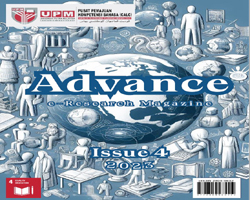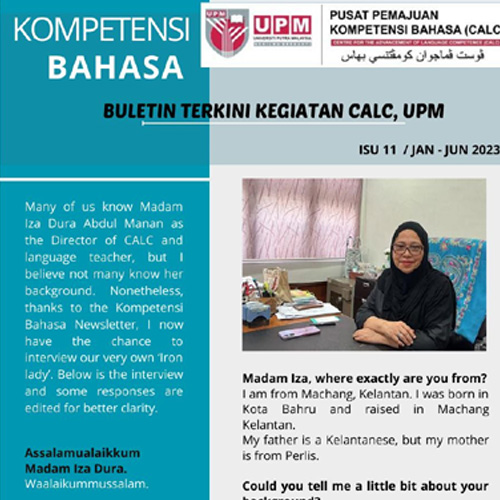By Rozana Sani, New Straits Times, 6 Mac 2019

WITH the rising demand for soft skills in the working world, questions abound whether being competent in English is still key for graduates to gain employment.
The World Economic Forum Future of Jobs report last year suggested that by 2020, complex problem-solving skills, critical thinking, creativity, good people management and emotional intelligence will become very important traits in the workplace.
Having sophisticated language skills provides the foundation to communicate ideas, thoughts and opinions effectively.
British Council Malaysia director Sarah Deverall said proficiency in English has never been more important to gain employment and get ahead in the digital age.
And companies based in Malaysia and abroad are increasingly operating across geographical boundaries, so the ability to communicate in English with internal and external stakeholders is crucial.
“While many people nowadays are competent in using and understanding English, skills such as having an advanced range of grammatical structures, natural pronunciation, or awareness of appropriacy and register can make a huge difference in how effective they communicate in English,” she said.
In its latest Job Outlook report released in January, online job portal Jobstreet.com stated that English proficiency in Malaysia continues to be of concern, with 64 per cent of employers saying that a poor command of the language was the second reason behind the unemployment of fresh graduates.
Jobstreet.com Malaysia country manager Gan Bock Herm said communication skills are among the top five valued by employers, and it is true that by improving those skills and having a good command of English, it would increase a jobseeker’s employability, especially for fresh graduates.
“Besides communication skills, there are other important traits that are crucial in the competitive job market.
“They include good problem-solving skills, the ability to manage stress and work independently, and the willingness to learn, embrace new changes and adapt accordingly,” he said.
SOFT SKILL DEVELOPMENT
“Learning a language can help with the development of soft skills, particularly when using the communicative learning approach, where students can develop teamwork, problem-solving capabilities, and the art of negotiating and conflict resolution,” said Deverall.
As an example, she said during speaking activities in British Council training programmes for scholarship recipients bound for studies at universities abroad, the students are given the opportunity to collaborate with their groupmates to practise turn-taking and negotiating.
The English classes may also involve discussions or essay-writing activities, where students are asked about their opinion on certain topics and to support it with evidence or ideas.
“This kind of activity allows students to develop their critical-thinking skills and confidence.
Alternatively, they may be asked to suggest a solution to an issue, which allows them to polish their problem-solving skills,” said Deverall.
In graduate training programmes, participants learn to make small talk with future bosses and colleagues, express ideas clearly in meetings, make presentations to clients or the management, and write structured, clear and concise emails, reports and proposals.
But English language courses are often short and may not be effective for university students to master the skills needed to survive the working world.
How can universities help students hone their English language skills, besides developing soft skills in an effective and lasting manner?
STUDENTS’ EXPERIENCE
In Universiti Putra Malaysia (UPM), students are required to partake in English proficiency courses or activities under the university’s Putra English Language Experience (ELEx) programme —a learning package conducted by the Centre for the Advancement of Language Competence (CALC) — every semester.
The experience can be both beneficial and enriching.
They include the English Language Proficiency (LPE) courses, Certificate in English Language (CEL) courses and Language Activities without credit (LAX) assignments.
The number of courses students have to take depends on their Malaysian University English Test (Muet) results, with those at a higher band getting more exemptions.
Muet gauges the undergraduates’ level of English in listening, speaking, reading and writing. Its proficiency band ranges between one and six, with the latter indicating the highest competency.
Nurul Farah Hana Shafrizal and Amirul Hakim Abdul Rahman, 20, both first-year Bachelor of Computer Science (Multimedia) students, have some things in common.
Their Muet score of Band 2 puts them as limited users of the language.
While both are comfortable in listening and reading, they are rather challenged when it comes to speaking and writing as they often shy away from conversing in English.
However, that is rapidly changing when they took up a course on reading for academic purposes. The course is one of five credited LPE courses conducted by CALC.
It not only taught Nurul Farah Hana and Amirul Hakim the skills to pen their words, but also to communicate confidently.
“The course has improved my comprehension through reading and analysing information and contents.
“And because the class requires me to think critically and share my opinion with fellow classmates of different capabilities, I now feel confident to speak in public. Not to mention, I made new friends, too,” said Amirul Hakim.
“For me, I learned that reading is really important as it can build my vocabulary and help me to understand nuances. With that, I feel comfortable speaking in English when interacting with my foreign coursemates,” said Nurul Farah Hana.
Alani Wahi Mohd Wahi, 21, a second-year Bachelor of Environmental Science and Technology student who scored Band 5—which means she has a very good command of English — discovered her creative side when she took up an LPE creative writing course.
Being used to cut-and-dry scientific writing, she took the opportunity to explore different ways of expressing her emotions and thoughts.
“In class, I went through the process of writing creative English pieces, such as poems and short stories.
“ To write a nicely structured poem, words need to fit in a certain way, thus requiring us to learn new vocabularies along the way.
“And, we were required to explain our poems and short stories in class. This is when our communication skills and self-confidence stepped up.
“We also analysed short stories and poems, and this helped to enhance our creativity and crititical thinking skills,” said Alani Wahi.
Preparation for the working world is what third-year Bachelor of Electrical and Electronic Engineering student Nufail Izzfarhan Rozley, 22, seeks from the CEL course on communication professional development.
Even though he scored Band 4 in Muet, Nufail Izzfarhan still finds a lot of room for improvemennt in his command of the language.
“I will soon go for internship and companies often use English as a medium of communication. This course has taught me to write a resume and conduct myself in interviews. I also learned about business communication.
“This has made me confident. In fact, I recently attended an interview for an internship placement and I think I didn’t do so badly,” he said.
Using English outside the classroom in an interactive and fun way is not something every student gets to experience.
But for Izzah Islah Muslim, 21, a second year Bachelor of Business Administration student, she experienced this in an LAX assignment called “Get Groomed”, which saw her working with five of her peers to produce three instruction videos on grooming.
For a student with a Band 3 in Muet, the activity pushed her out of her shell to make presentations and take a leadership role.
“My groupmates and I were from different faculties with different levels of English proficiency. We had to organise meetings and group discussions, which must be conducted in English, and record them to show our instructor.
“It took the pressure out of having to speak and write in English, and it helped me to make new friends,” said Izzah Islah.
Her coursemate, Hasbatrisyia Alya Mohd Hedzir, 21, had the best opportunity to interact with native-speakers when she joined a two-week outbound mobility programme to the University of Wollongong near Sydney, Australia.
Already proven to be fluent in English with a Band 5 in Muet, Hasbatrisyia Alya said it was an out-of-the-norm experience.
She joined English language classes at the host university, stayed with a foster family and explored her surroundings by visiting tourist attractions.
“I learned so much more than English itself. I learnt a lot about the country’s culture, people’s attitude and history.
“I gained confidence by communicating with the locals, learned to adapt to new surroundings and to think on my feet. Overall, not only did I improve my English, but I also got to see another part of the world.”
CONTINUOUS LEARNING
According to CALC director Associate Professor Dr Arshad Abd Samad, Putra ELEx was approved by the university senate in 2013 and implemented the same year.
A major goal in developing the package is to address industry feedback of graduates’ weakness in the English language, especially in conversations.
“While the LPE courses focus on acquiring important language skills, the CEL courses emphasise the need in occupational situations. Finally, the LAX assignments are meant to encourage students to speak in English and raise their confidence in using the language.
“It is organised in small groups without the presence of lecturers, and the students are required to discuss in English to complete their tasks.”
As a whole, Arshad said the ELEx provides language-related knowledge and skills needed for academic studies through the LPE courses; skills and abilities needed for the workplace through the CEL courses; and, opportunities to develop confidence in using the language through LAX activities.
ELEx, Arshad said, is intended to hone the students’ English language skills and abilities. It is to make them more confident in using the language so they do not become tongue-tied. Student are encouraged to speak naturally and not feel awkward.
“Not all our students have the opportunity to use the English language in natural and authentic circumstances,” he said.
Arshad believes that language skills remain crucial even when the emphasis seemed to have moved to other soft skills, such as creativity and critical thinking.
“It is through good language ability that the employee will be able to convey ideas more clearly. Hence, even if an employee has ideas and is highly creative, he or she will not be able to express those ideas clearly without a good command of the language.
“Secondly, being proficient in a second language allows one to view relevant issues from a different perspective.
“The more ways we can perceive an issue, the better we can assess the situation and make appropriate decisions.”
Every semester, around 8,000 UPM students will undertake ELEx to increase their proficiency in English language, inadvertently gaining soft skills along the way.
CALC has 43 instructors conducting ELEx, each supervising around 20 groups of students.
Credit: Article was written by Rozani Sani and published in the New Straits Times on the 6th of March 2019
Date of Input: 18/04/2019 | Updated: 18/04/2019 | n_farrid
MEDIA SHARING





























